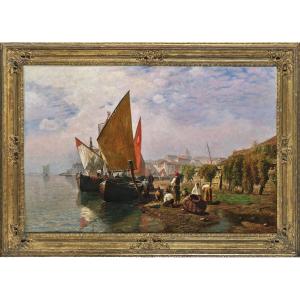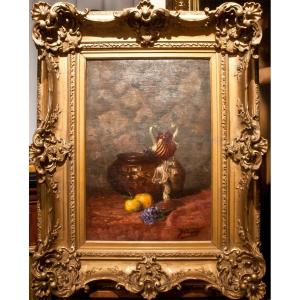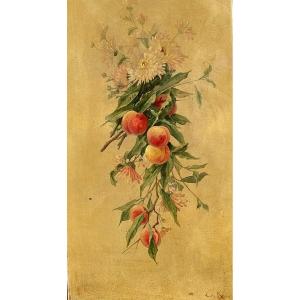Still Life with Roses
Material: Oil on canvas
Dimensions: 30.5 x 41 cm
Frame: Yes
Helena van Borselen (1867-1947) was a remarkable Dutch woman whose life and work spanned the late 19th and early 20th centuries, a period of significant social and cultural change. Although her legacy is not as widely known as that of other figures from this period, she made important contributions to her fields of interest, particularly in relation to art and culture in the Netherlands.
Early life and background
Helena van Borselen was born in The Hague (Den Haag), Netherlands, in 1867. She came from a well-established family, although detailed records of her family origins are scarce. Her year of birth places her at the heart of the European cultural and political landscape of the late 19th century, at a time when the Netherlands was undergoing major transformations, both in its social fabric and in its artistic movements.
Education and interests
Van Borselen's early life was marked by her engagement with the arts and culture, which were becoming increasingly influential in Dutch society at the time. Although not a professional artist herself, she was a keen supporter and patron of the arts, often involved in cultural circles in The Hague, which was an important centre for art and politics in the Netherlands in the late 19th and early 20th centuries. She was particularly interested in literature, painting and other forms of artistic expression. Her social circle included a number of leading figures from the intellectual and artistic world of the time, and her activities reflect the growing importance of women in cultural and intellectual life in the late 19th century.
Activism and Public Life
As a woman in a largely male-dominated society, van Borselen was part of a broader wave of progressive women who were beginning to demand better educational and social opportunities. The late nineteenth century was a pivotal period in the women's rights movement, and while van Borselen is not known for her activism in the modern sense, her participation in cultural life and support for social progress reflect a quiet but important form of engagement in a changing social landscape.

































 Le Magazine de PROANTIC
Le Magazine de PROANTIC TRÉSORS Magazine
TRÉSORS Magazine Rivista Artiquariato
Rivista Artiquariato